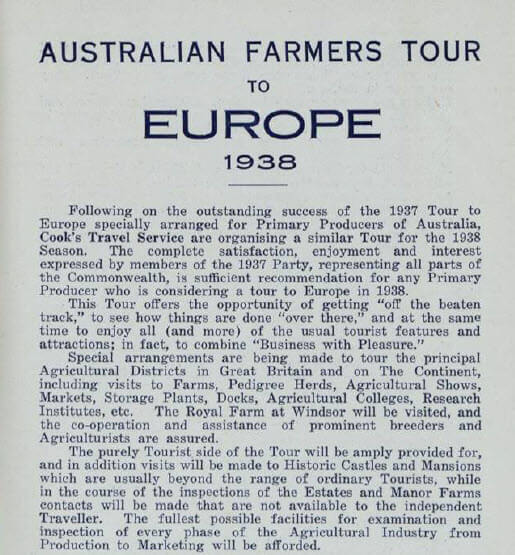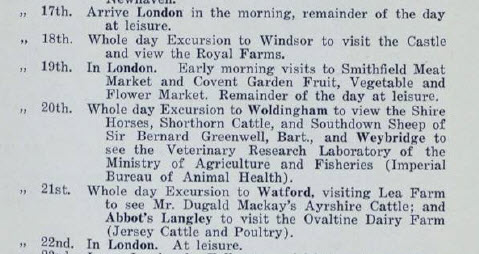Sun, Sea and Heritage Livestock
Today, 26 January, is Australia Day, which is all the excuse I needed to spend some time on a grey Monday digging though the Australia material in our Leisure, Travel and Mass Culture resource. I was anticipating bright photographs and stylised posters of beaches, and while these were present there’s also some more unexpected content.
The date of Australia Day is not unproblematic as it marks the anniversary of the First Fleet of British ships arriving at Port Jackson, New South Wales. Many feel that this is disrespectful to Indigenous Australians, who sometimes refer to 26 January as Invasion Day or Survival Day. In a 1965 booklet from the Australian News and Information Bureau we find a matter-of-fact reference to this European arrival and the nature of the early settlers:
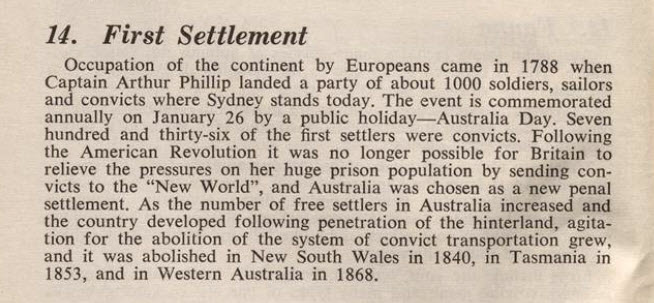
The booklet goes on to list all manner of details about the history and administration of Australia, including birth-rates, immigration policy, standards of living, and cultural achievements. However, my favourite image is entitled ‘Atomic Energy Research’. It features what appears to be a spilled beaker of liquid as the object of an experiment. And an inflatable hazmat suit.
Australia in Brief, 1965, © Copyright of this material is retained by the content creators.
John W. Hartman Center, Duke University does not claim to hold any copyrights to these materials.
‘Australia Welcomes You’ provides a much more typical tourist focus and some welcome sunshine to a murky Wiltshire day. We’re treated to many tempting destinations, including the Great Barrier Reef, Alice Springs, and the Gold Coast.
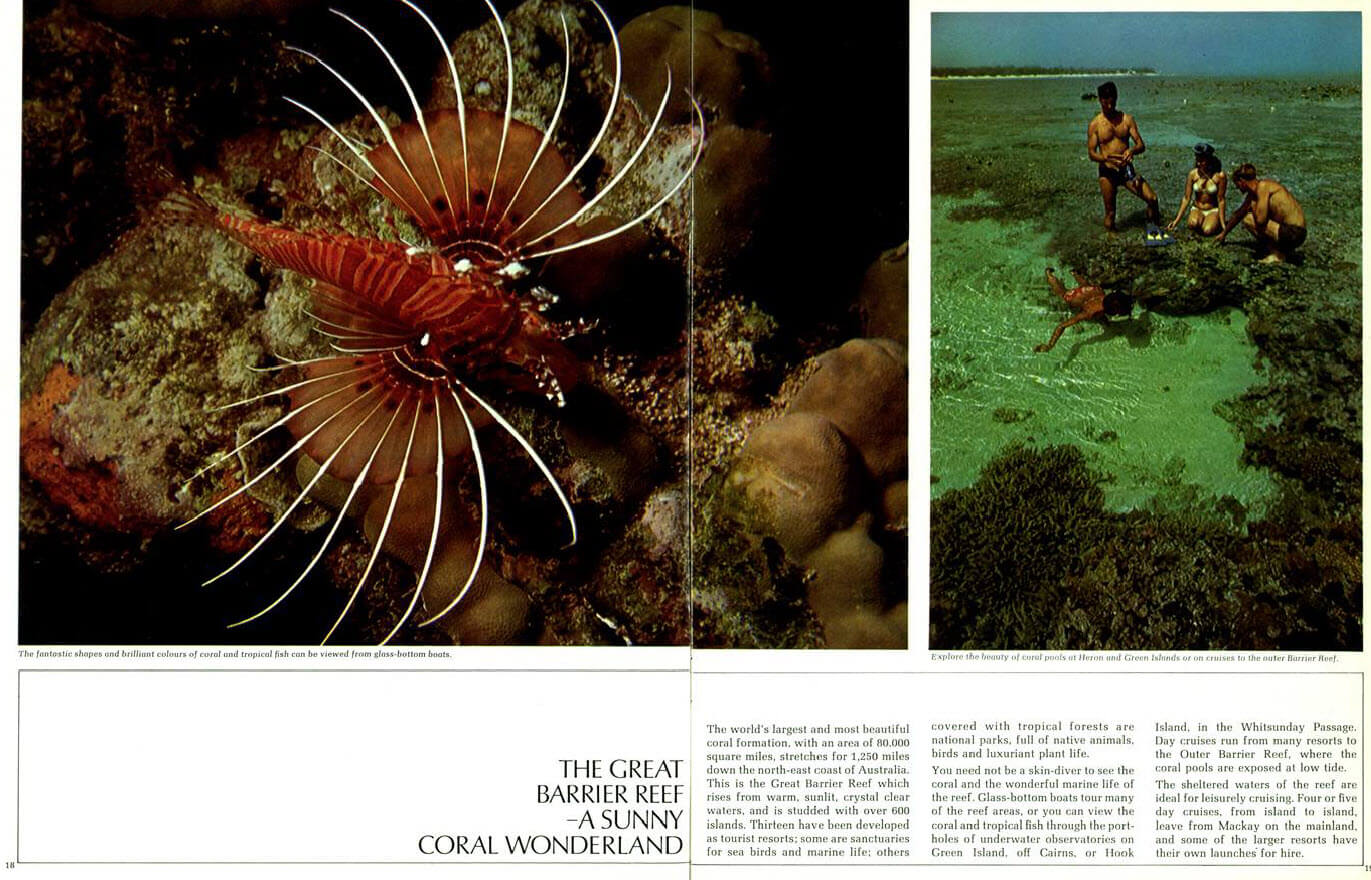
Australia Welcomes You, Oct 1969, © Copyright of this material is retained by the content creators.
Michigan State University does not claim to hold any copyrights to these materials.
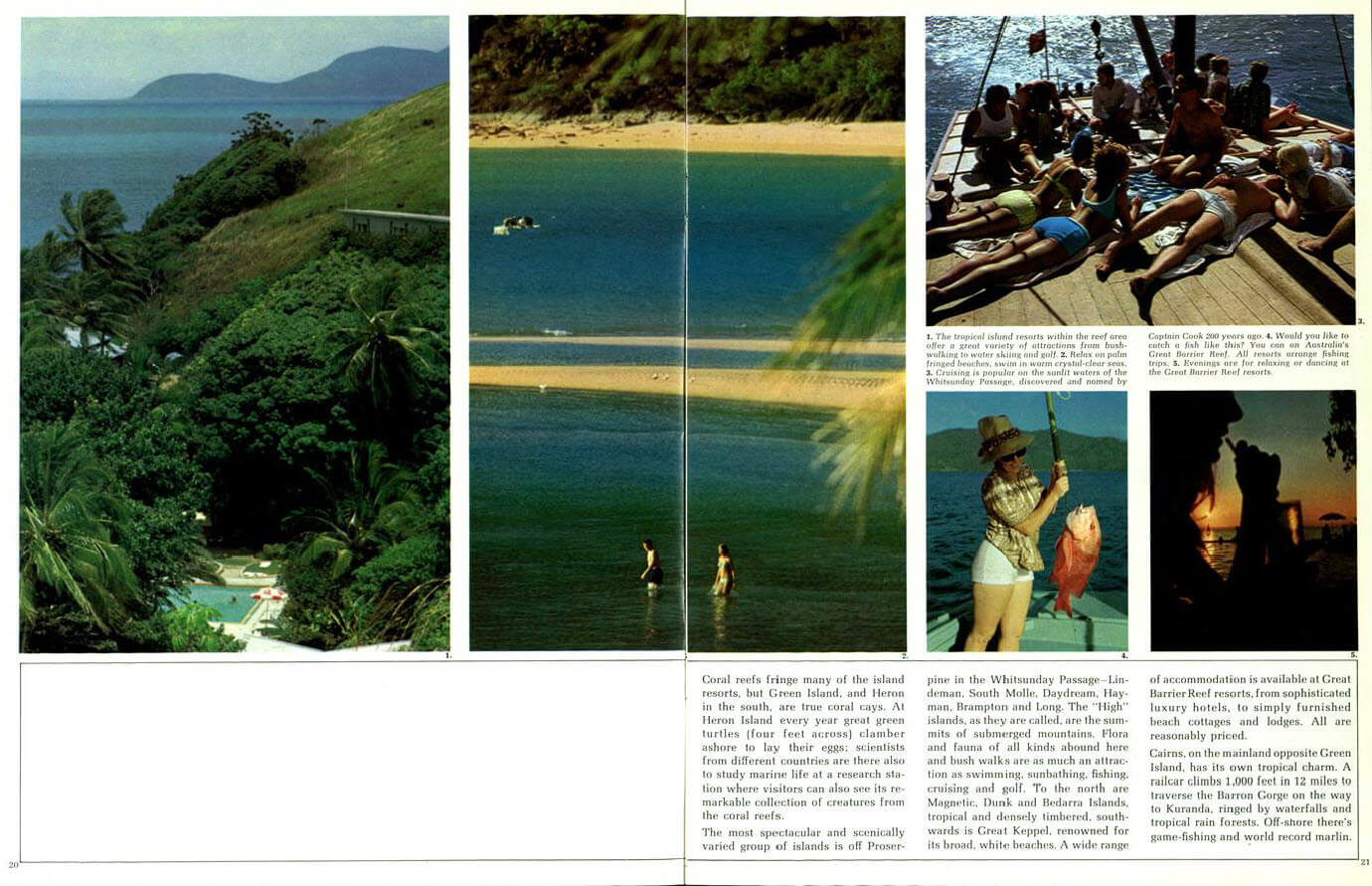
Australia Welcomes You, Oct 1969, © Copyright of this material is retained by the content creators.
Michigan State University does not claim to hold any copyrights to these materials.
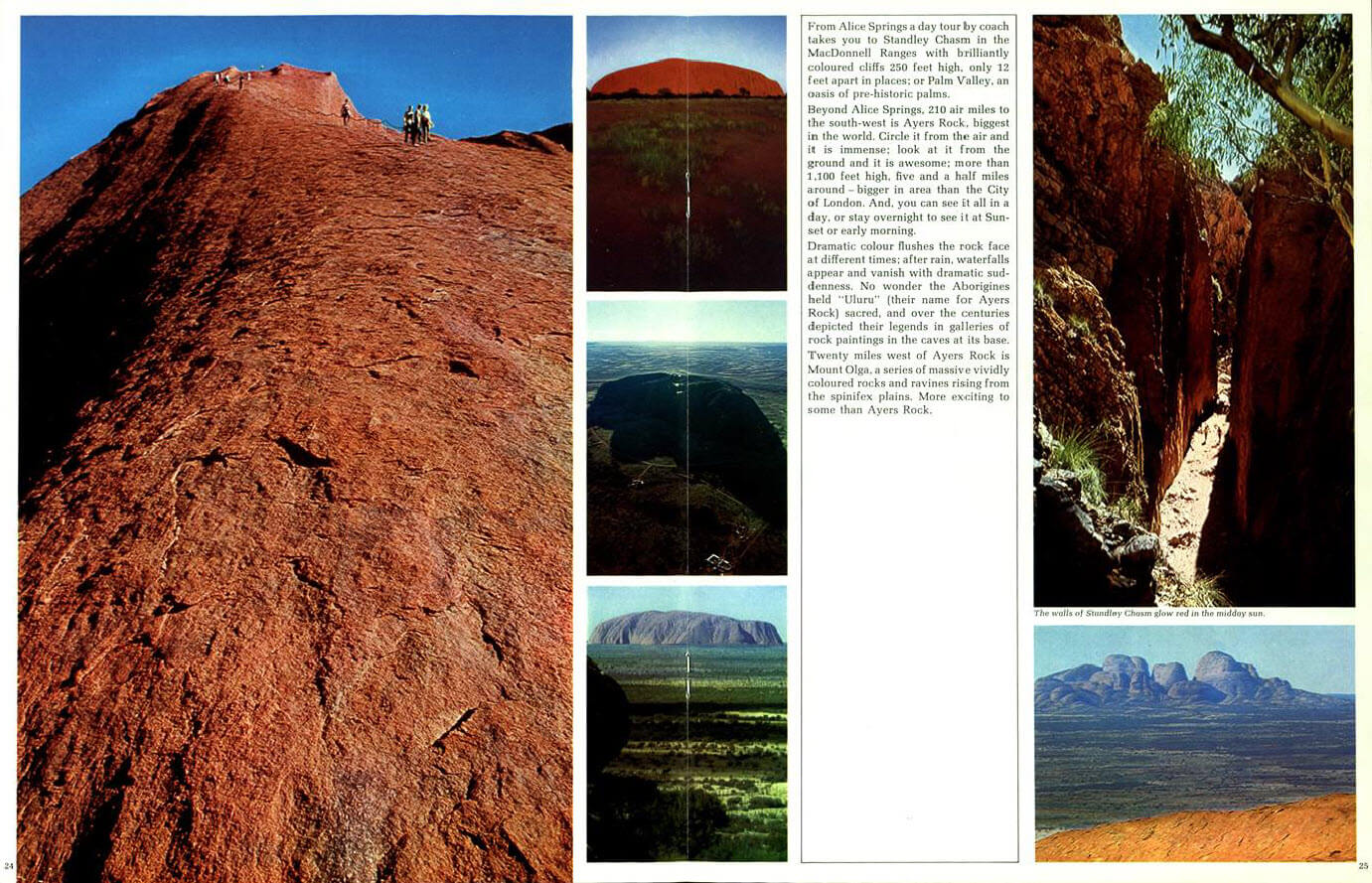
Australia Welcomes You, Oct 1969, © Copyright of this material is retained by the content creators.
Michigan State University does not claim to hold any copyrights to these materials.
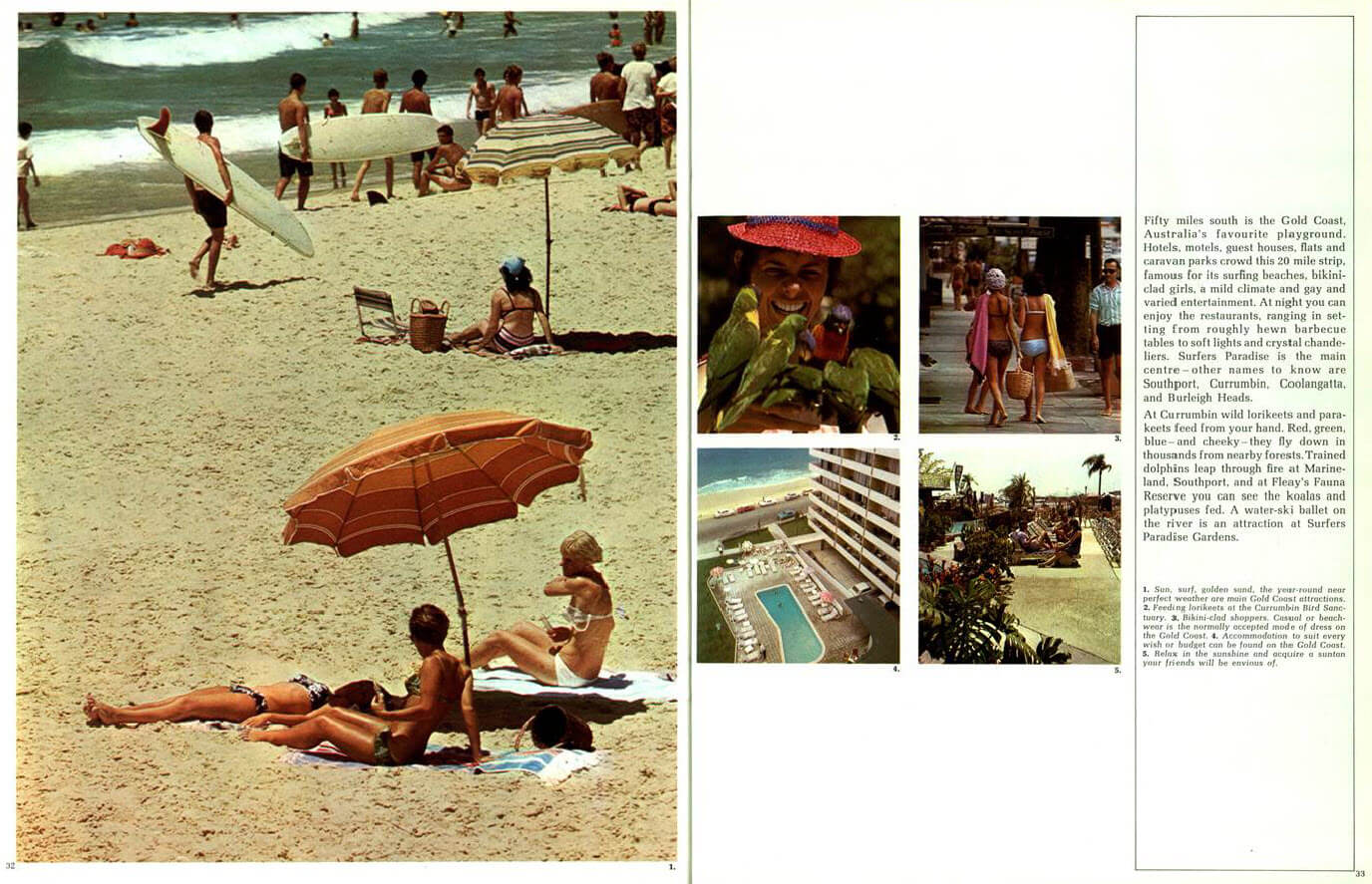
Australia Welcomes You, Oct 1969, © Copyright of this material is retained by the content creators.
Michigan State University does not claim to hold any copyrights to these materials.
After the glamour of late ‘60s Australia I was amused to find details for a Cook’s Travel Service tour of Europe for Australia Farmers. The 1938 leaflet promises ‘a tour combining business with pleasure’ and higher billing is given to the visits to ‘royal farms, pedigree herds, agricultural shows, experimental farms, research institutes, markets, storage plants, etc.’ than ‘all the usual tourist features, sightseeing and excursions’.
Australian Farmers Tour to Europe 1938, 1938, © Permission granted by Thomas Cook Archives
The 19 May was apparently spent at some of London’s more prestigious produce markets in preparation for two days of livestock related tours. I’m intrigued by what souvenirs might have come back from such a tour!
Australian Farmers Tour to Europe 1938, 1938, © Permission granted by Thomas Cook Archives
For more information about our resources, including free trial access and price enquiries, please email us at info@amdigital.co.uk.
Recent posts

The blog highlights American Committee on Africa, module II's rich documentation of anti-apartheid activism, focusing on the National Peace Accord, global solidarity, and student-led divestment campaigns. It explores the pivotal role of universities, protests, and public education in pressuring institutions to divest from apartheid, shaping global attitudes toward social justice and reform.

This blog examines how primary sources can be used to trace the impact of young voices on society, particularly during pivotal voting reforms in the UK and the US. Explore materials that reveal insights into youth activism, intergenerational gaps, and societal perceptions, highlighting their interdisciplinary value for studying youth culture, activism, and girlhood across history.


